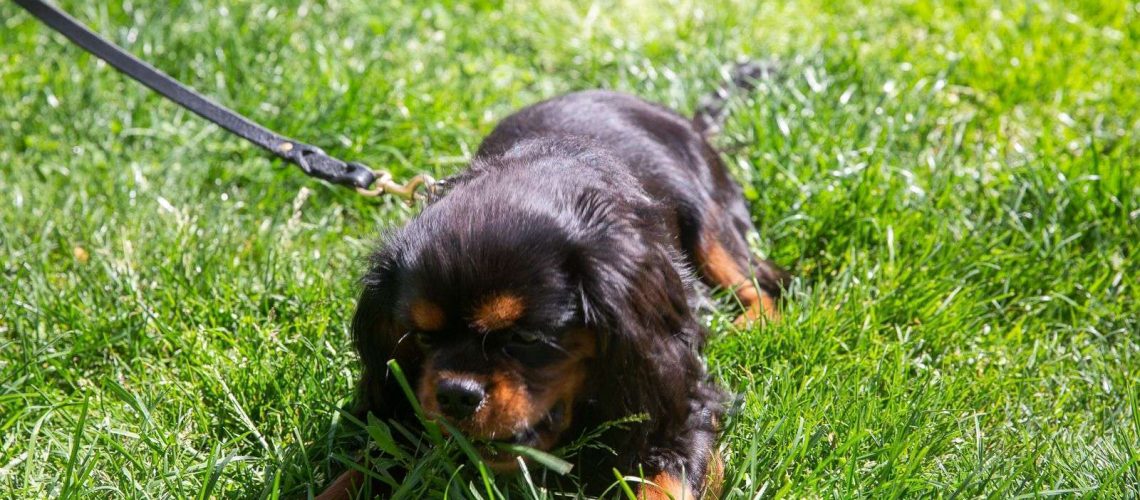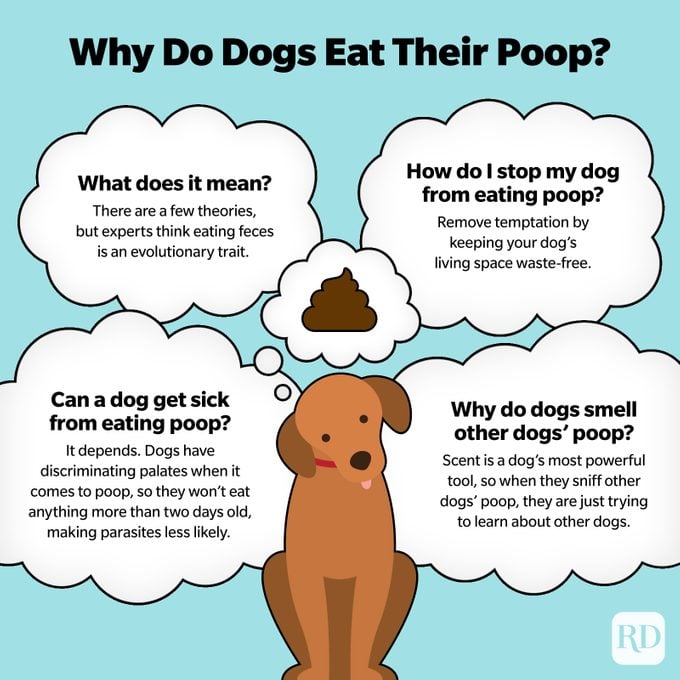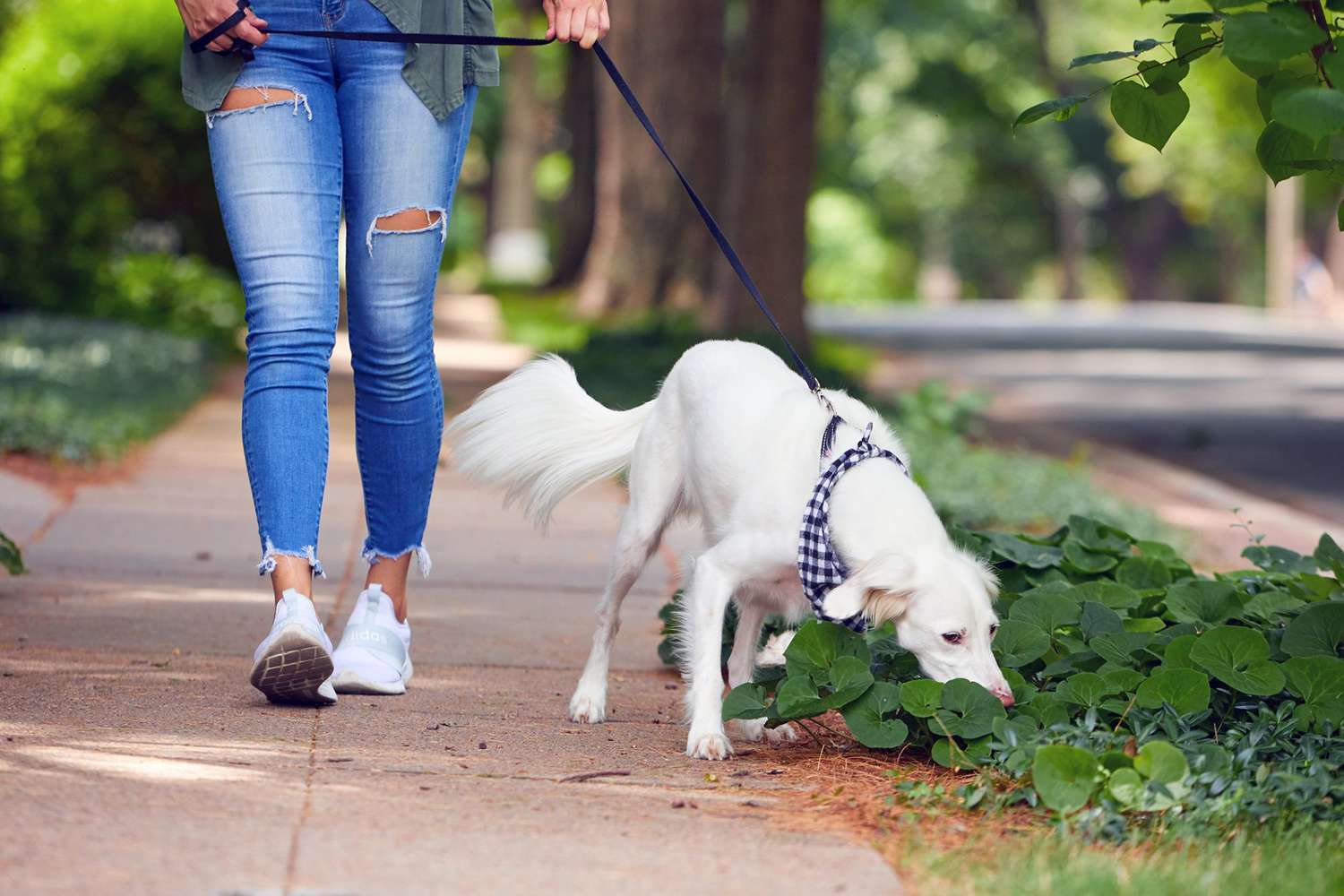Key Takeaways:
- Grass eating is a natural behavior for dogs, but excessive consumption may indicate an underlying issue.
- Ensure your dog's diet is well-balanced and provides all necessary nutrients to reduce grass eating.
- Regular exercise and mental stimulation can help distract your dog from grazing on grass.
- Train your dog with commands like "leave it" or "drop it" to discourage them from eating grass.
- If excessive grass eating persists, consult a veterinarian to rule out any medical conditions or dietary deficiencies.
Are you tired of constantly pulling your dog away from munching on grass? Do you worry about the potential harm it could cause to their health? Well, look no further! In this article, we will uncover the secrets to stopping your furry friend from indulging in this peculiar habit. By understanding why dogs eat grass and learning effective strategies to prevent it, you can ensure your pup stays healthy and happy. So, let's dig into this fascinating topic and discover how you can put an end to your dog's grass-eating antics once and for all.
Why do dogs eat grass and is it harmful for them?
Many dog owners have observed their furry friends munching on grass while out on walks or in the backyard. While it may seem strange, this behavior is actually quite common among dogs. There are a few reasons why dogs eat grass. One possibility is that they simply enjoy the taste and texture of the grass. Another reason could be that they are trying to fulfill a nutritional need, such as adding fiber to their diet.
Is eating grass harmful for dogs? In most cases, it is not. However, there are a few things to keep in mind. If your dog eats grass that has been treated with pesticides or other chemicals, it could be harmful to them. Additionally, if your dog eats a large amount of grass and then vomits, it could be a sign of an underlying health issue and you should consult your veterinarian.
Reasons why dogs eat grass:
- Taste and texture: Some dogs simply find the taste and texture of grass appealing.
- Nutritional needs: Dogs may eat grass to fulfill a nutritional need, such as adding fiber to their diet.
Potential harm from eating grass:
- Pesticides and chemicals: Grass treated with pesticides or other chemicals can be harmful if ingested by dogs.
- Vomiting: If a dog eats a large amount of grass and then vomits, it could indicate an underlying health issue.
Signs your dog might be eating too much grass
1. Frequent grass consumption
If you notice that your furry friend is constantly munching on grass, it could be a sign that they are eating too much of it. Dogs typically eat grass occasionally to aid digestion or satisfy a nutritional need, but if they are doing it excessively, it may indicate an underlying issue.
2. Vomiting after consuming grass
Another sign that your dog may be overindulging in grass is if they vomit shortly after eating it. While occasional vomiting can happen due to various reasons, if it consistently occurs after grass consumption, it suggests that their grass intake is excessive and causing discomfort.
3. Behavioral changes
Keep an eye out for any unusual behavior in your dog after they have eaten a significant amount of grass. Excessive grass consumption can sometimes lead to behavioral changes such as restlessness, irritability, or even aggression.
It's important to remember that every dog is unique, and while some may exhibit these signs more prominently, others may not show any noticeable symptoms at all. If you suspect your dog is eating too much grass, consider consulting with a veterinarian to rule out any potential health concerns.
Health risks of excessive grass consumption in dogs
Excessive grass consumption in dogs can pose several health risks that pet owners should be aware of. While occasional nibbling on fresh blades of grass is generally harmless, consuming large amounts regularly can lead to the following issues:
1. Gastrointestinal irritation
When dogs consume excessive amounts of grass, the fibrous material can irritate their stomach lining and intestines. This irritation may result in vomiting or diarrhea as their body tries to expel the indigestible matter.
2. Intestinal blockage
In some cases, dogs may swallow grass in long strands or clumps, which can potentially cause an intestinal blockage. This is particularly dangerous as it can lead to severe discomfort, abdominal pain, and even require surgical intervention.
3. Pesticide exposure
If your dog consumes grass from areas treated with pesticides or herbicides, they are at risk of pesticide poisoning. These chemicals can be toxic to dogs and may cause symptoms such as vomiting, diarrhea, weakness, or even neurological issues.
To mitigate these health risks, it's crucial to prevent your dog from eating excessive amounts of grass. Implementing preventive measures and seeking guidance from a veterinarian can help ensure the well-being of your furry companion.
Effective ways to prevent your dog from eating grass
1. Provide a balanced diet
Ensuring that your dog receives a nutritionally balanced diet is essential in reducing their desire to eat grass. A diet rich in high-quality proteins, healthy fats, and appropriate carbohydrates can help fulfill their nutritional needs and reduce any cravings for non-nutritive substances like grass.
2. Regular exercise and mental stimulation
Engaging your dog in regular physical exercise and mental stimulation can divert their attention away from grazing on grass. Taking them for daily walks or engaging in interactive play sessions not only keeps them physically active but also helps satisfy their natural instincts.
3. Environmental enrichment
Creating an enriching environment for your dog can help distract them from consuming excessive amounts of grass. Provide them with interactive toys, puzzle feeders, or engage in training activities that keep their minds occupied and prevent boredom-induced grazing behaviors.
Remember that every dog is unique, so finding the most effective method to discourage grass consumption may require some trial and error. Patience and consistency are key when implementing preventive measures.
Can changing your dog's diet reduce their desire to eat grass?
While there is no guarantee that changing your dog's diet will completely eliminate their desire to eat grass, it can certainly help reduce the inclination. Opting for a high-quality commercial dog food or consulting with a veterinarian to create a balanced homemade diet can ensure that your dog receives all the necessary nutrients, reducing any nutritional deficiencies that may trigger grass consumption.
Introducing additional fiber-rich foods into their diet, such as steamed vegetables or small amounts of pumpkin, can also aid in digestion and potentially decrease their urge to seek out grass for this purpose. However, it's important to consult with a veterinarian before making any significant changes to your dog's diet to ensure it aligns with their specific nutritional requirements.
Natural remedies or supplements that discourage dogs from eating grass
While there are no proven natural remedies or supplements specifically designed to discourage dogs from eating grass, some pet owners have reported success with certain approaches:
1. Bitter-tasting sprays
Applying bitter-tasting sprays on areas of grass that your dog frequently targets may deter them from consuming it. These sprays are designed to have an unpleasant taste and discourage further grazing behavior.
2. Herbal supplements
Certain herbal supplements like chamomile or ginger have been suggested as potential aids in reducing grass consumption in dogs. However, it's crucial to consult with a veterinarian before introducing any new supplements into your dog's routine to ensure they are safe and appropriate for your pet.
Remember that natural remedies and supplements may not work for every dog, and individual responses can vary. It's always best to consult with a veterinarian who can provide personalized advice based on your dog's specific needs.
The importance of consulting a veterinarian if your dog continues to eat large amounts of grass despite preventive measures
If your dog persists in eating large amounts of grass despite implementing preventive measures, it is crucial to consult with a veterinarian. While occasional grass consumption is normal for dogs, excessive and persistent grazing behavior may indicate an underlying health issue that requires professional attention.
A veterinarian can conduct a thorough examination to rule out any medical conditions that could be driving this behavior. They may also recommend additional diagnostic tests if necessary. Prompt veterinary intervention can help identify and address any potential health concerns, ensuring the well-being of your beloved canine companion.
Remember, as a responsible pet owner, it's essential to stay vigilant and prioritize your dog's health by seeking professional guidance when needed.
In conclusion, it is important to understand why dogs eat grass and address any underlying issues. By providing a balanced diet, ensuring regular exercise, and consulting with a veterinarian, we can help prevent our furry friends from eating grass excessively.
Why is my dog obsessively eating grass?
While most dogs enjoy spending time outside, some may become bored and need an activity to occupy their time when left alone. One common way they pass the time is by nibbling on grass, which is easily accessible to them. Dogs have a natural desire for human interaction and may resort to attention-seeking behaviors such as eating grass if they feel neglected by their owners.
What should I give my dog if he's eating grass?
If you are already providing your dog with high-quality dog food, consider giving them more chew toys or bones to keep them occupied. You can also throw toys and bones outside so that if your dog becomes bored, they can chew on a delicious bone instead of the grass. Another option is to focus on improving their training.
Why do dogs eat grass then be sick?
For dogs, eating grass is similar to eating a salad. Even if you provide your dog with a nutritious diet, they may still have an appetite for greens. There is another type of grass eating where a dog consumes grass and then vomits it up. This is believed to be a natural instinct for dogs to induce vomiting when they feel sick after ingesting something unpleasant.
How do I get my puppy to stop eating grass and dirt?
To prevent dogs from eating dirt, it is important to ensure they receive adequate physical and mental stimulation to prevent boredom. If this does not work, it may be necessary to restrict access to areas where they are prone to eating dirt.
Should I be worried if my dog keeps eating grass?
If your dog occasionally eats grass, it is probably not a big problem. However, if your dog is eating grass excessively and it is causing repeated vomiting and diarrhea, it is recommended to contact your veterinarian. Other signs that indicate you should call the vet include if the vomiting and/or diarrhea lasts for more than 24 hours.
Should I stop letting my dog eat grass?
Can dogs eat grass without any negative effects? For dogs that are in good health and receive regular parasite prevention medication, it is generally safe for them to eat grass. However, it is important to ensure that the grass they consume is free of herbicides, pesticides, and fertilizers to maintain their health.

















